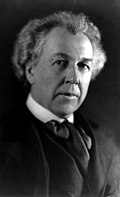References
- ↑ Eddy, Chuck (22 March 1997). "Refried Dreams". The Accidental Evolution of Rock 'n' Roll: A Misguided Tour Through Popular Music. Da Capo Press. p. 185. ISBN 0-306-80741-6.
- 1 2 So Long, Frank Lloyd Wright by Simon & Garfunkel - Track Info | AllMusic , retrieved 2023-12-12
- ↑ Cornel Bonca (2014). Paul Simon: An American Tune. Rowman & Littlefield. p. 54. ISBN 9780810884823.
- 1 2 3 4 Charlesworth, C (1997). The Complete Guide to the Music of Paul Simon and Simon & Garfunkel. Omnibus Press. p. 50. ISBN 0-7119-5597-2.
- 1 2 3 4 5 6 7 Bennighof, J (2007). The Words and Music of Paul Simon. Greenwood. pp. 41–48. ISBN 978-0-275-99163-0.
- 1 2 Jackson, L (2004). Paul Simon: The Definitive Biography. Citadel Press. p. 130. ISBN 978-0-8065-2539-6.
- 1 2 Everett, W (2008). The foundations of rock: from "Blue suede shoes" to "Suite: Judy blue eyes" . Oxford University Press. pp. 178, 254. ISBN 978-0-19-531023-8.
- ↑ Rodgers, JP (2000). Rock Troubadours. Hal Leonard. pp. 4–5. ISBN 978-1-890490-37-9.
- ↑ Adair, Tom (12 February 2000). "The Bridge too far". The Scotsman.
| Studio albums | |
|---|---|
| Live albums | |
| Compilation albums | |
| Box sets | |
| Soundtrack albums | |
| Videos | |
| Discographies | |
| Other | |
| Sounds of Silence |
|
|---|---|
| Parsley, Sage, Rosemary and Thyme | |
| Bookends |
|
| Bridge over Troubled Water |
|
| Other singles | |
| Other songs | |
